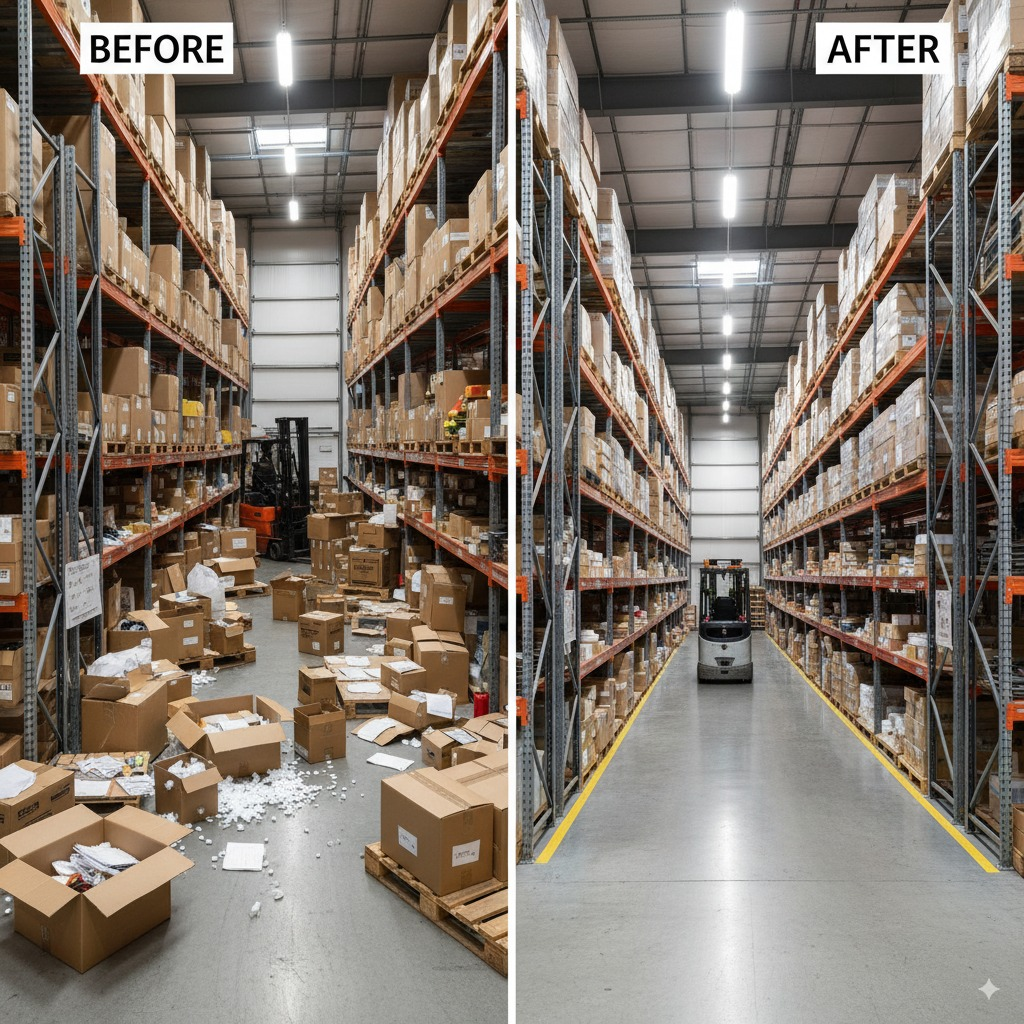Why Your Boring System is Your Secret Superpower
Unlock growth by ditching chaos. Learn how "boring" documentation and simple systems are the secret superpower for predictable business success.

Last week during my office commute, I was listening to an Economist podcast where they were discussing how clear processes and documentation actually get things moving. The conversation got me thinking that while I've been doing something similar for years but never really codified it into a proper system.
For the longest time, I used to think my role was to be the person who jumps in and saves the day when things went wrong. You know that feeling when everything's falling apart and you swoop in with the perfect solution? It feels important. It feels necessary.
But as time went along, I realized I was completely wrong about what actually drives results.
The Ola Years: Learning in Chaos
When I was working at Ola, things were incredibly chaotic. The company was scaling fast, processes were constantly changing, and you literally had to figure things out every other day. There wasn't time for lengthy documentation or formal procedures, you just had to make things work.
But here's what I noticed: the people who thrived weren't necessarily the smartest ones. They were the ones who quickly built little systems for themselves. They'd jot down what worked, create simple checklists, and document their approaches, even if it was just on sticky notes.
That experience planted a seed in my mind, though it took me years to properly understand what I'd learned.
The 75-Day Reality Check
Back in 2018, we had a major project - deploying 300 people across 175 different locations for a client.
- My team looked at our previous deployments and confidently said, "One month, easy!"
- My experience told me around 45 days. I thought I was being conservative.
- Reality? 75 days.
We all fell victim to a simple but powerful trap: our own optimism. We focused so much on our plan that we underestimated the sheer difficulty of hiring in dozens of small, remote villages. This experience taught me a crucial lesson that leadership isn’t about heroic effort or inspiring speeches. It’s about embracing the power of boring, methodical systems.
That's when something clicked. I stopped hoping people would figure things out and started documenting what actually works. It was like going back to that mental model I'd unconsciously built during my Ola days.

The Planning Trap: Why Your Gut Feeling is Lying to You
That 75-day deployment is a textbook example of something experts call the "Planning Fallacy." We are wired to believe our project is special and will go smoothly. We take the “inside view,” focusing only on our plan, and ignore the most valuable data available: the “outside view,” which is how similar projects have failed or been delayed in the past. My team looked at their easy urban deployments; they should have been looking at the tough rural ones.
Think about the last time a project went over budget or past its deadline. Was it because of a lack of effort, or a lack of honest, system-based planning?
This reliance on gut feeling is a liability. In 2022, just when the quick commerce was booming, we worked with one such startup who needed security for their e-commerce warehouse. They were in a hurry.
Our standard approach involves a detailed two-day security audit before we put anyone on site. It's methodical, it works, but it takes time.
The startup’s manager, however, didn’t have time for our system. He had a “superpower”—his gut. He gave us a number, demanded deployment in three days, and told us to do "random checks" instead of our systematic entry/exit protocol for every person to keep costs low.
Within a week, they had theft problems. We initially got blamed, but our email documentation showed we'd recommended against this very shortcut. Six months later, the startup had bigger problems and eventually failed.
Their faith in instinct over process was part of what hurt them.

The Indian Context: Forget the "Manual of Me," Create a "Manual of Them"
A popular idea I had come across was creating a “manual of me”— a document explaining your work style to your team. In theory, it’s great. In the reality of a service businesses, it can be impractical. Can you imagine handing a document to a demanding client that says, “Here’s how you need to work with me”? It just doesn’t work.
The theory of being explicit is right, but the application is wrong for our context. So, I flipped it.
My team was getting frustrated with difficult clients who paid low fees but had endless demands. Sound familiar? Instead of hoping everyone would develop great client management skills, I started documenting the patterns I saw:
- "The Constant Follow-Up": Clients who need updates every few hours. How do you handle them without going crazy?
- "The Value Hunter": Always pushing for more at the same price. What boundaries work?
- "The Vague Communicator": Never gives clear requirements upfront. How do you pin them down?
One page each. Nothing fancy. Just what actually worked when things went well.
The change was immediate. My team went from reactive and stressed to proactive and confident. They had clear starting points instead of figuring everything out from scratch each time.

What I've Actually Learned
Here's the thing that keeps proving itself true: smart people can deliver outstanding results sometimes and poor results other times. That inconsistency makes them unreliable at a business level.
But anyone following a well-documented process will deliver good results consistently.
This isn't about turning people into robots. It's about giving everyone a solid foundation to build on. When your team has clear processes for common situations, their mental energy goes toward real problem-solving instead of reinventing basic approaches over and over.
Boring documentation isn't a constraint - it's a launching pad.
Think about it - even at Ola, in all that chaos, the people who survived and thrived were the ones who found ways to create small pockets of predictability for themselves.
The Newton Connection
Newton said it best: "If I have seen further it is by standing on the shoulders of giants."

Every good solution builds on what came before. When you document your processes, you're creating those shoulders for your team to stand on. You're not asking them to reinvent everything from scratch.
The businesses we admire for great service? They're successful because they have processes that work and get refined over time. They don't depend on any single person being brilliant all the time.
What Actually Works
Based on my experience from Ola days to now, here's what I've found works:
- Start simple: One page documenting why you exist, what you do, and how you do it. This becomes your reference point for decisions.
- Document what works, not what sounds good: Don't create theoretical processes. Write down the approaches that actually delivered results, even if they seem obvious.
- Create starting points, not rigid scripts: Give people clear ways to begin common tasks. They can adapt from there.
- Build on reality, not hope: When planning projects, look at how similar things actually went in the past, not how you wish they'd gone.
- Let it evolve: The best systems get better over time based on real results.
My Challenge to You
Think about one recurring problem in your business right now. Maybe it's inconsistent client communication, unclear handoffs between team members, or the same mistakes happening in routine processes.
This week, create one simple document - just one page - that captures how to handle that situation when things go well. Don't overthink it. Just write down what actually works.
That boring document might become your most valuable business asset.
What I Keep Coming Back To
Your real competitive advantage isn't having brilliant people who save the day (though that's nice). It's having systems that let regular people deliver consistent quality.
The magic isn't in the heroic individual - it's in the documented process that makes good results predictable.
Most business problems aren't unique. Someone has solved something similar before. The question is whether you're going to learn from that or keep starting from scratch every time.
Back at Ola, we were all starting from scratch constantly. Now I know better.
What's one thing you could document this week?